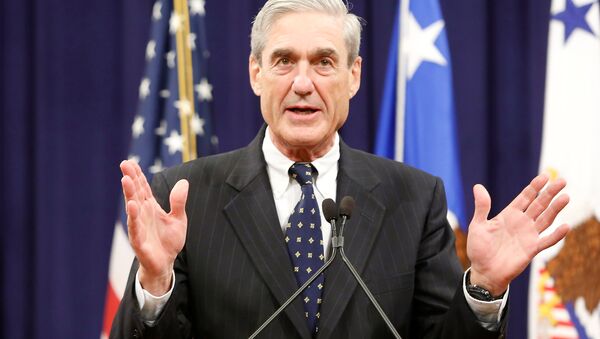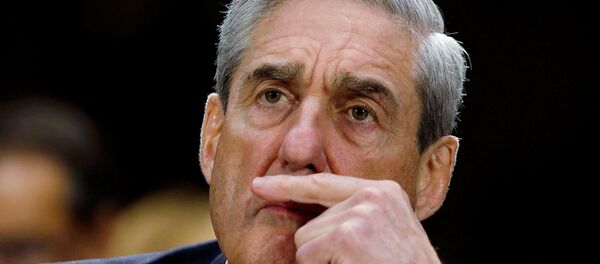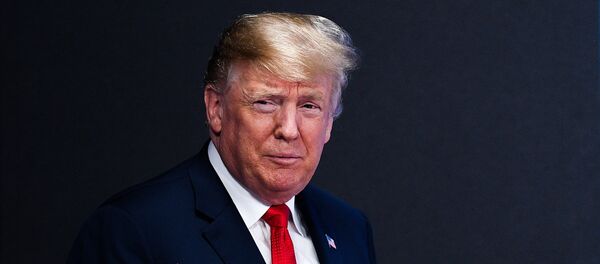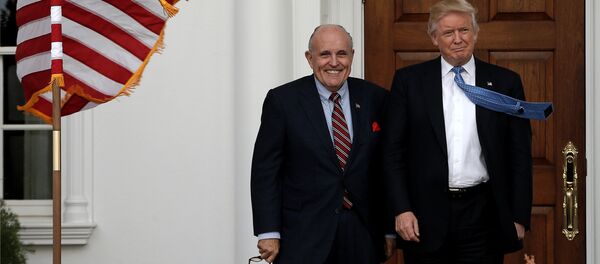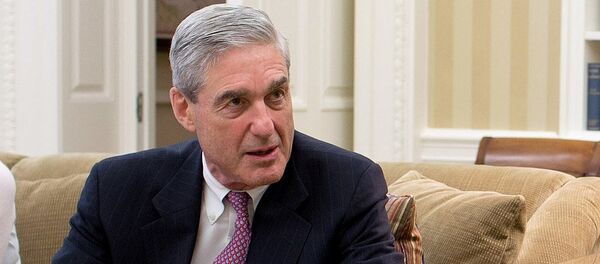However, President Trump has evaded a question about possible pardons for his former associates, charged in the course of the investigation. He said that he doesn't want to talk about pardons “right now”, adding that the investigation was “sad on so many levels”.
Even though the report has led to criminal charges against at least 34 people, it found no proof that the Trump campaign was involved in the hacking of the US Democratic Party before the election. Although the report did not exonerate the US president.
Sputnik: So what is your assessment of the results of the Special Counsel investigation and who benefited the most from the entire process?
Susan Bloch: My reaction was surprise. In terms of who benefits I would say the country benefits from knowing more about what happened in the election.
Trump clearly benefits because he was found not to have colluded with the Russian interference. So I think, as is often the case, more information is better.
Sputnik: And yet the finding, although they did not recommend any new indictments, they did not exonerate the president in the letter that was written by I belief Robert Mueller, so the findings do not exonerate him, what do you make of that?
I think mainly what everyone in this country is waiting for is the full report, we couldn't learn very much from the Attorney General Barr's brief summary.
Sputnik: Do you think we’re going to see the full report? It seems there’s already some moves to block that coming out in full?
Susan Bloch: I don’t know.
I do think that the country and the Congress certainly will demand the full report, and when I say full report everyone understands that certain parts of it have to be redacted, covered up; there’s certain privileged information that cannot come out. But I think the country will demand that properly scrubbed of that private information; I think the full report will come out.
Sputnik: Donald Trump has come out and said that the investigation was an attempt to take over the US government and he’s even use the word “treason” in describing what this was. Do you agree with that in any way? Do you understand where he’s coming from when he says that an attempt to take over the government, that it was treasonous?
Susan Bloch: No. It’s part of our procedure and it goes back decades that when we think something by the president or someone high up in the administration does something wrong the proper procedure is appoint an independent counsel to look at it.
We've done that for years. It’s an important part of our system, and really President Trump should welcome it. He has come out better for it. So I don’t understand why he's so angry.
Susan Bloch: Yes, and they continue.
Sputnik: So why then right now is Trump evading questions about the possibility of pardoning some of his former associates who have been charged, indicted and convicted and some of which are serving jail sentences now?
Susan Bloch: I think he is wise to take his time and think about it. Controversial pardons typically do not come out during the presidency they usually come out in the final hours of a president's term.
So I think, one, he doesn’t know what he wants to do because this report is so new, and two, he’s wise to wait and just not do some things so controversial so quickly.
Sputnik: There were some indictments, there were people imprisoned, you said you were surprised to find that he didn’t find obstruction, do you think that this can later be found, if Mueller didn’t find it when the entire report does come out is there a possibility that somebody else will find crimes?
Susan Bloch: Mueller came out clearly that there was no conspiracy and no collusion with the Russian government. That was a clear finding, but there wasn’t a clear finding about obstruction of justice. He left that open and that’s what surprised me. I was surprised that he didn’t make a decision on that, so I think that’s still up in the air.
Sputnik: So why then do you think then Mueller actually completed this report if he didn’t have the capacity either to exonerate or ask for an indictment. It is just very strange, why do you feel that there was a possibility of obstruction of justice you would just leave it?
Susan Bloch: I don’t know, there’s a couple of possibilities: one, as you know we believe that you cannot indict a president while he’s in office. So Mueller might’ve decided he shouldn’t make a finding on that while Trump is in office.
He also may have felt that it’s an issue that is better left up to Congress to decide and if they decide that there’s enough evidence of obstruction then the remedy is to use the impeachment process. I think that’s the most likely. I think Mueller thought that was up to Congress to decide.
Views and opinions expressed in this article are those of Susan Bloch and do not necessarily reflect those of Sputnik.
